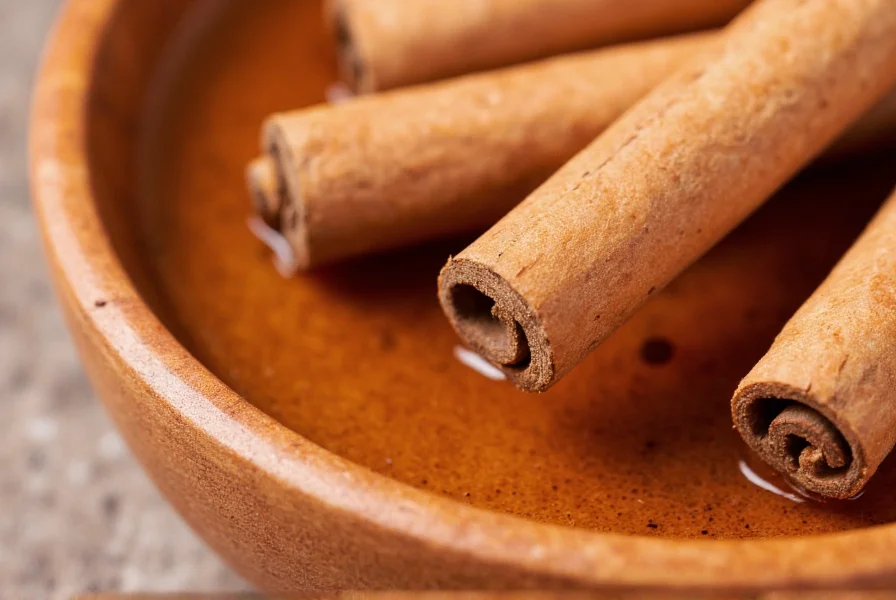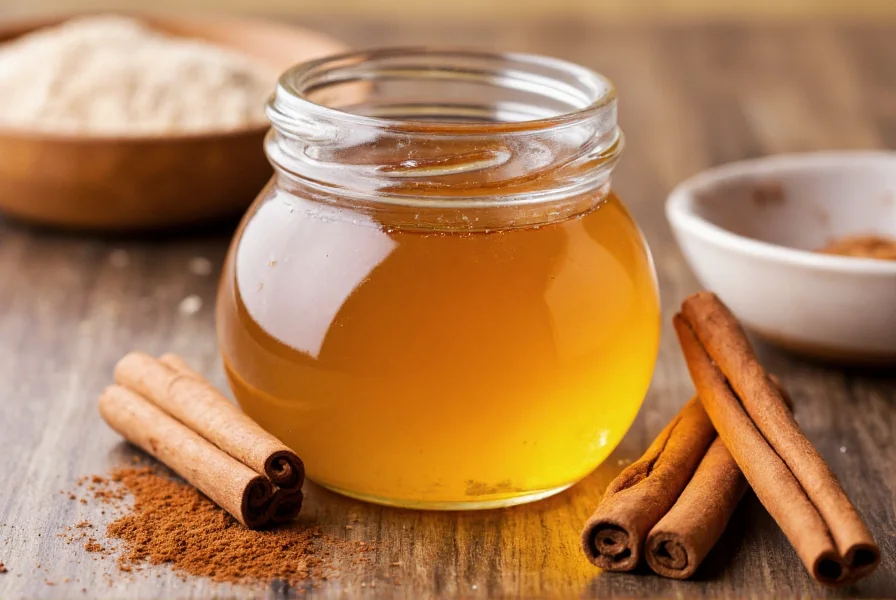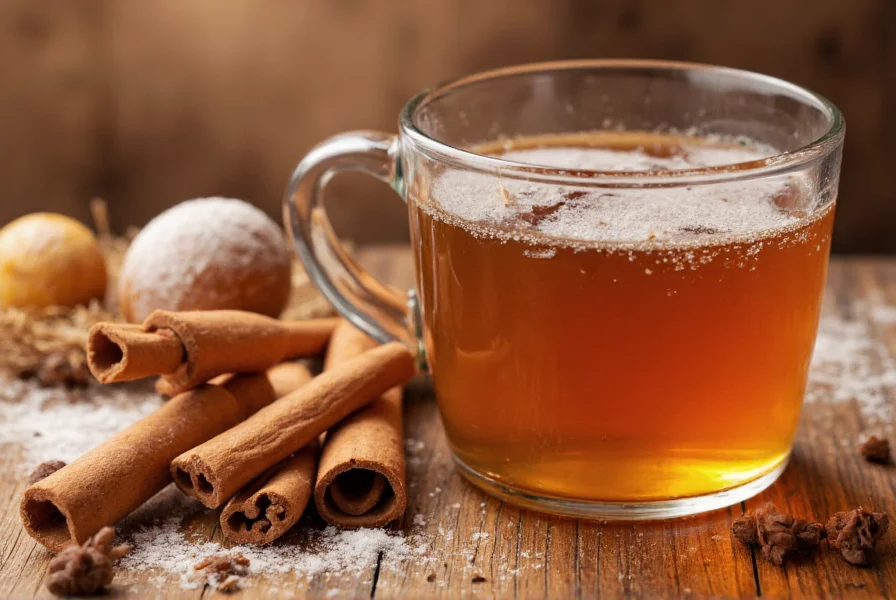For centuries, cinnamon and honey have been staples in traditional medicine systems across various cultures. This dynamic duo appears in Ayurvedic practices, traditional Chinese medicine, and folk remedies worldwide. Modern science continues to investigate these ancient claims, revealing both promising findings and areas requiring further research.
Understanding Cinnamon: Types and Composition
Cinnamon exists primarily in two varieties: Ceylon ("true" cinnamon) and Cassia (more common in supermarkets). Ceylon contains significantly lower levels of coumarin, a compound that can cause liver issues in high doses. Both types contain cinnamaldehyde, responsible for cinnamon's distinctive flavor and many of its biological effects.
| Cinnamon Type | Coumarin Content | Availability | Recommended Use |
|---|---|---|---|
| Ceylon | Low (0.017g/kg) | Specialty stores | Daily consumption |
| Cassia | High (6.97g/kg) | Most supermarkets | Occasional use |
Honey's Natural Properties
Honey isn't just sweetener—it's a complex substance containing over 180 elements including enzymes, vitamins, minerals, and amino acids. Raw, unprocessed honey retains beneficial compounds like hydrogen peroxide and bee-derived enzymes that give it antimicrobial properties. The specific composition varies based on floral source, with darker honeys generally containing more antioxidants.

Evidence-Based Health Benefits of Cinnamon and Honey
Research on cinnamon and honey combinations shows mixed but promising results across several areas:
Blood Sugar Regulation
Multiple studies indicate cinnamon may improve insulin sensitivity. A 2013 meta-analysis published in the Journal of Medicinal Food found cinnamon supplementation significantly reduced fasting blood glucose levels. When combined with honey—which has a lower glycemic index than refined sugar—the mixture may offer a more blood-sugar-friendly sweetener alternative, though moderation remains essential.
Antioxidant Capacity
Both ingredients rank high on the Oxygen Radical Absorbance Capacity (ORAC) scale. Research in the Journal of Agricultural and Food Chemistry shows that cinnamon has 26.5 mmol TE/100g antioxidant capacity, while certain honeys reach up to 1.5 mmol TE/100g. Their combination creates a synergistic effect that may enhance overall antioxidant protection.
Antimicrobial Properties
A 2019 study in Microbiology and Biotechnology demonstrated that cinnamon extract inhibited various bacteria including E. coli and S. aureus. Honey's natural hydrogen peroxide production creates an environment hostile to microbial growth. When combined in appropriate ratios, they may enhance each other's antimicrobial effects, making them valuable in traditional wound care applications.
Practical Applications and Usage
For those interested in incorporating cinnamon and honey into their routine, evidence suggests these approaches:
- Morning tonic: 1 teaspoon raw honey and 1/2 teaspoon Ceylon cinnamon in warm water may support metabolism
- Respiratory relief: A mixture used in traditional remedies for coughs and sore throats
- Natural sweetener: Substitute for sugar in teas, oatmeal, or yogurt
- Topical application: Diluted mixture for minor skin irritations (patch test first)

Safety Considerations and Limitations
While generally safe, important considerations exist for cinnamon and honey consumption:
- Infants under 1 year should never consume honey due to botulism risk
- Cassia cinnamon contains high coumarin levels—limit to 1 teaspoon daily
- Diabetics should monitor blood sugar despite potential benefits
- Allergic reactions, though rare, can occur with either ingredient
- Not a substitute for medical treatment for serious conditions
Current research shows promising but preliminary results for many claimed benefits. A 2020 review in Nutrients concluded that while laboratory studies show significant potential, more human clinical trials are needed to confirm many health claims about cinnamon and honey combinations.
Creating an Effective Cinnamon and Honey Mixture
For optimal results when preparing cinnamon honey remedies:
- Use raw, unprocessed honey to preserve beneficial enzymes
- Choose Ceylon cinnamon for regular consumption
- Mix 1 part cinnamon with 3 parts honey for topical applications
- For internal use, 1/2 to 1 teaspoon of the mixture daily is sufficient
- Store in a cool, dark place to maintain potency
Remember that natural remedies work gradually—consistent, moderate use yields better results than occasional large doses. The combination of cinnamon and honey represents just one component of a healthy lifestyle, not a miracle cure.
Frequently Asked Questions
Does cinnamon and honey really help with weight loss?
Current scientific evidence doesn't support cinnamon and honey as effective weight loss solutions. While some studies suggest cinnamon may improve metabolic markers, no research shows significant weight reduction from this combination alone. Sustainable weight management requires comprehensive dietary and lifestyle changes.
What's the best time to consume cinnamon and honey?
Many traditional practices recommend consuming cinnamon and honey in warm water first thing in the morning to potentially support metabolism. However, scientific evidence for timing-specific benefits is limited. Consistency matters more than specific timing—incorporate it into your routine when you'll remember to use it regularly.
Can cinnamon and honey lower cholesterol levels?
Some research indicates cinnamon may help reduce LDL cholesterol. A 2017 study in Nutritional Journal found significant reductions in total cholesterol, LDL, and triglycerides among participants taking cinnamon supplements. Honey's effect on cholesterol is less documented. While promising, these natural remedies shouldn't replace prescribed cholesterol medications without medical consultation.
How long does it take to see benefits from cinnamon and honey?
Effects vary by individual and intended benefit. Some people report improved digestion within days, while metabolic benefits may take 4-8 weeks of consistent use. Scientific studies typically measure effects over 8-12 week periods. Remember that natural remedies work gradually and should be part of an overall healthy lifestyle.
Is there a difference between using cinnamon powder versus sticks with honey?
Cinnamon sticks generally contain less coumarin than ground cinnamon, making them potentially safer for regular use. Powder dissolves more readily in honey but may contain higher coumarin levels, especially with Cassia cinnamon. For daily consumption, Ceylon cinnamon sticks ground fresh or high-quality Ceylon powder provides the best balance of safety and effectiveness.











 浙公网安备
33010002000092号
浙公网安备
33010002000092号 浙B2-20120091-4
浙B2-20120091-4